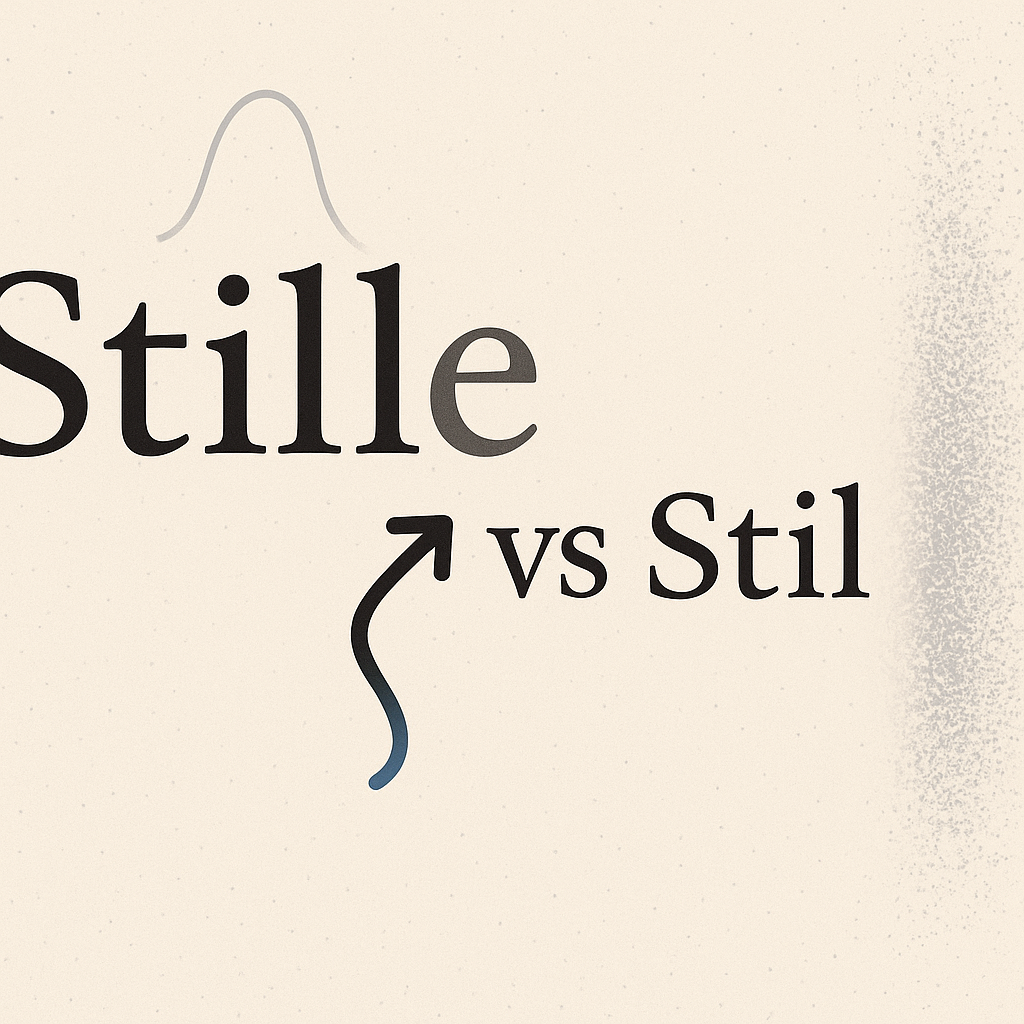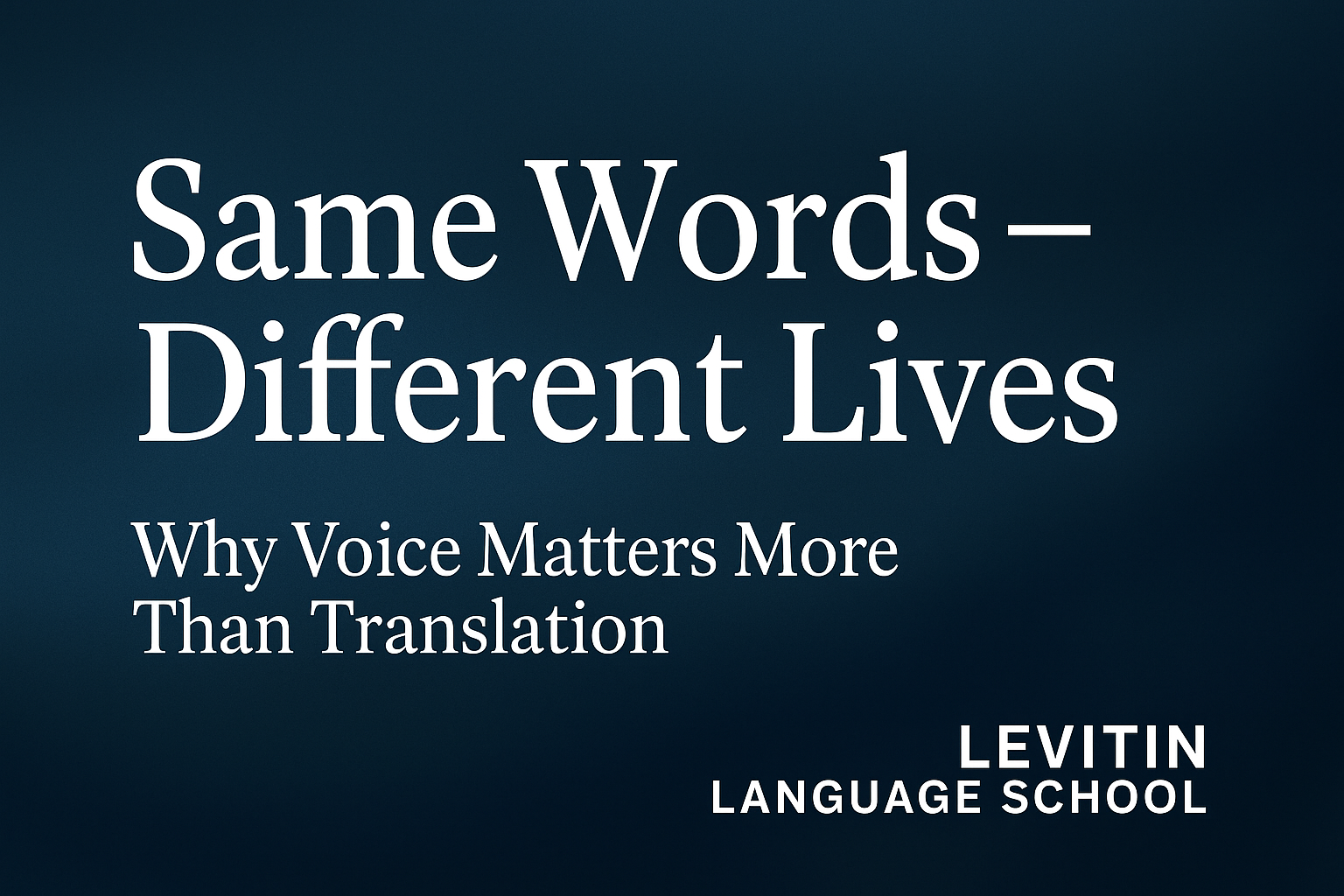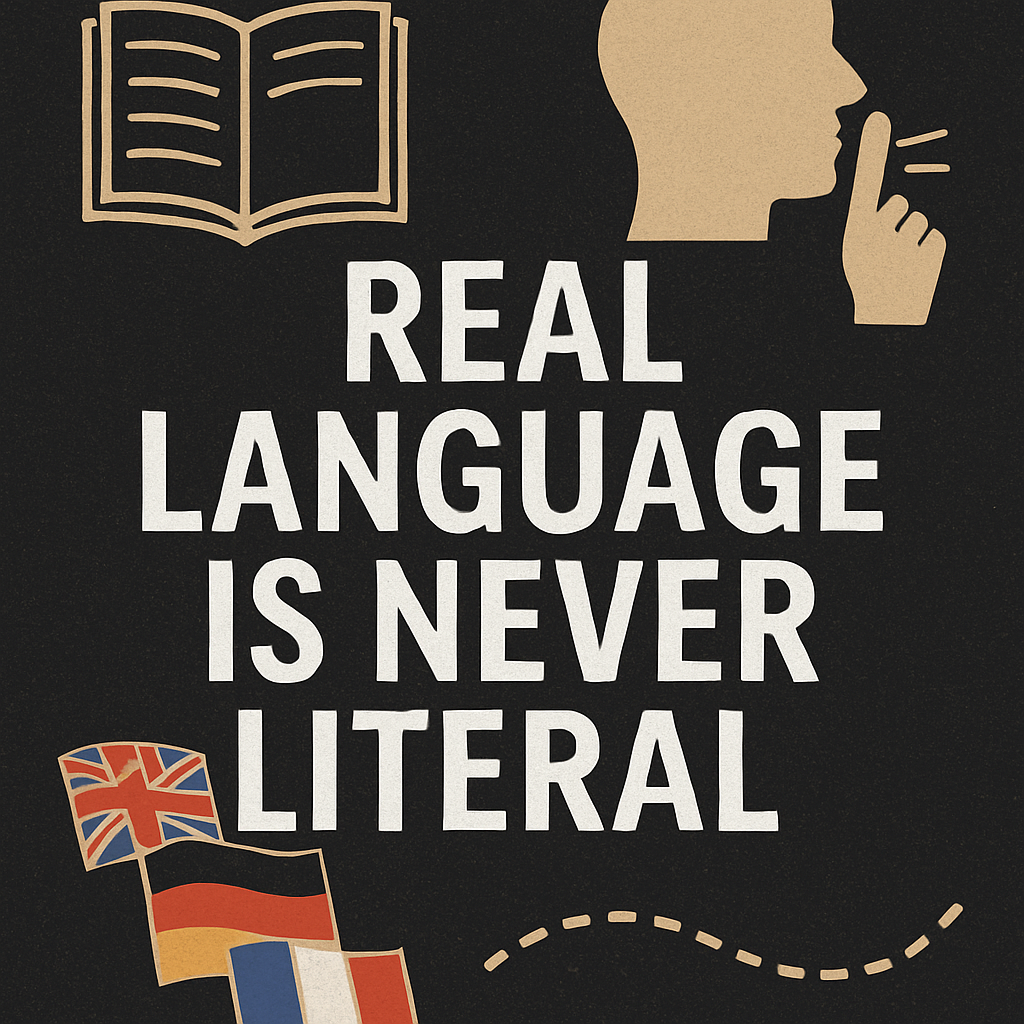Why It’s Not About Rules — But About Attitude
“We don’t just say something. We say how we feel about what we say.”
— Tymur Levitin
Author’s Column — Tymur Levitin on Language, Meaning, and Respect
Part of the series: Grammar Is Meaning, Not Rules
Why Students Struggle with Modality
They often memorize that can, mustoraz might are “modal verbs.”
But they don’t understand what makes them modal.
They know that “you must go” is stronger than “you should go” — but they don’t know dlaczego.
The answer is simple:
Modality isn’t about grammar. It’s about your inner attitude.
What Modality Really Means
Modality means:
“What do I think or feel about this action?”
Not:
- What is happening?
But: - Do I want this to happen?
- Am I sure it will happen?
- Do I believe it should happen?
Modality adds emotional and logical filters to a sentence. It reflects:
- certainty or doubt
- obligation or permission
- desire or fear
- possibility or necessity
Modal Verbs Are Not Real Actions
Modal verbs like can, must, would, might, may, should, shall -
they’re not real actions. You can’t “must” something. You can’t “should” someone.
They exist only to express your relationship to the main verb.
Compare:
- I go to work. — action
- I must go to work. — mental necessity
- I might go to work. — uncertainty
- I would go to work. — hypothetical or polite
Modality = mental position
Verb = real-world action
Native Speakers Don’t Learn Modality — They Feel It
If you ask a native speaker to explain dlaczego “you might go” feels softer than “you must go”, they won’t give you grammar rules.
They’ll say:
“It just sounds less direct.”
“It’s more polite.”
“It’s not so strong.”
That’s exactly how we teach:
We train perception, not memorization.
Modality Is Universal — But Languages Do It Differently
All languages express modality — but they use different tools:
| Language | Examples | Method |
|---|---|---|
| Angielski | can, may, must, would | modal verbs |
| Niemiecki | können, müssen, dürfen | modal verbs + syntax shifts |
| Ukraiński | можу, мушу, слід | modal verbs + particles |
| Hiszpański | poder, deber, quizás | modal verbs + adverbs |
| Arabski | لازم, ممكن, ينبغي | verbal stems + particles |
That’s why literal translation often fails:
“He must be tired” is not the same as “Er muss müde sein” — even if grammatically similar.
Modality carries tone, psychology, even social context.
Why Modality Matters in Real Life
Modality is the reason:
- “You could try again.” feels kind.
- “You must try again.” feels pushy.
- “Try again.” feels cold.
And that’s why learning it is not just about speaking correctly —
Chodzi o sounding human.
Related posts from our blog
→ One Noun — One Identifier
→ Why ‘a apples’ Doesn’t Exist
→ Tense Shift in Translation: Dlaczego czas zawsze ma znaczenie
→ Why We Don’t Promise You’ll Learn English in 30 Days
O autorze
Tymur Levitin — founder, director, and senior instructor at Levitin Language School / Start Language School by Tymur Levitin
🔗 Poznaj autora →
© Tymur Levitin. Wszelkie prawa zastrzeżone.























